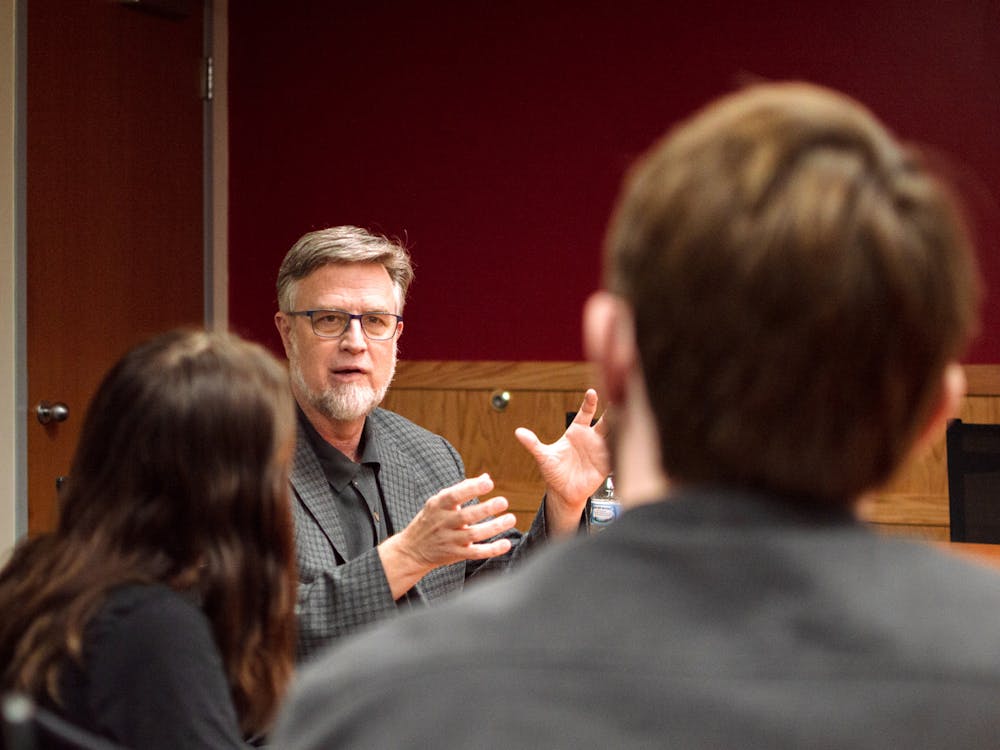By Alison Treen, Staff Writer
Miami University has approved several significant changes to the Global Miami Plan, which will be implemented for the fall 2015 semester.
From 2012-14, the university underwent a series of processes to ultimately propose a revised Miami Plan, according to the Miami Plan Redesign. Task force members, the Liberal Education Council (LEC) and representatives from each Dean's office collaborated to send out university-wide surveys and request feedback to revise the plan. The University Senate approved the changes to the Global Miami Plan April 21, 2014.
According to the Revised Global Miami Plan, the new liberal arts program will encompass many learning characteristics, called competencies. The two key competencies are critical thinking and written communication, which will be emphasized in all components of the new plan.
"Communication is a key competency cited by employers as essential for professional success," the Revised Global Miami Plan said, "And given the size of Miami's student population, it is more expedient and practical to assess written rather than oral communication."
The most significant changes with the Miami Plan will be seen in the foundation courses, thematic sequences, capstones, advanced writing courses, intercultural perspectives courses and an experiential learning requirement.
Foundation courses will have a stronger emphasis on written communication and critical thinking. Thematic sequences will undergo similar changes, and over a three-year time span following the implementation of the new plan, current thematic sequences will undergo LEC review.
Capstones will also be evaluated to increase focus on written communication and critical thinking, and will require a student-initiated project that involves both competencies. A written capstone project, either as a final project or reflection of one, must also be submitted.
The revised plan will also include an advanced writing course. The 200 or 300-level course will focus on student writing, the drafting process and frequent instructor feedback. It will also require multiple writing projects, totaling at least 7,500 words over the course of the term, according to the Revised Miami Plan. This requirement is recommended as a second or third year course, but divisional courses may also count for it.
Andrew Hebard, associate professor of English, who was involved in the revision, said this is the most significant change in the revision.
"Every professor at this university is an expert in writing in their field," he said. "This requirement will draw upon that range of expertise."
Hebard also explained the new requirement as a counter to the influx of AP English credits the university accepts.
Enjoy what you're reading?
Signup for our newsletter
"More and more students have been placing out of first-year composition, he said. "This change assures that every student will take at least one writing course before they graduate."
The Global Perspectives requirement will be reduced to six credit hours, a decrease from the current nine hours.
"The intercultural requirement broadens the [Global Perspectives] requirement by including courses that might not be global, but that still deal with issues of diversity and cultural difference (for example, a literature course on Native American literature)," Hebard said.
The experiential learning requirement will be a new addition to the Miami Plan, and it focuses on applying student learning outside of the classroom. Examples include undergraduate research, community and civic engagement (like service-learning courses) and professional experiences such as internships, student teaching, or tutoring, according to the Revised Miami Plan.
"The experiential learning requirement is an entirely new category, but it is really just describing experiences that are already occurring in many courses," Hebard said. "This requirement just assures that students at some point have one of the experiences that the Senate document outlines."
Although such changes to the Miami Plan may seem minor, Androne said the modifications are important toward the quality of students' education.
"Changes in such a plan attempt to reflect the needs of students, progress in disciplinary scholarship, as well as input from the surrounding employment community," Androne said. "As the world's expectations change, so should our understanding of what it means to be an informed and prepared citizen of that world."
Renée Baernstein, history professor and Associate Dean of the College of Arts and Sciences, agreed with Androne.
"It's a fast-changing world and we have to keep current," Baernstein said. "The revision will provide our students a general education that's international, intercultural and flexible … while allowing them to play to their strengths and interests."
However, not all members of the Miami community are entirely on board.
"I hate [the Miami Plan] because I do understand the well roundedness but I wish [required Miami Plan courses] didn't factor into your GPA as much," sophomore Autumn Peterson said.
She suggested making Miami Plan courses pass-fail, rather than count for letter grades.
Regardless of some students' reservations, the new Miami Plan will be introduced next semester - and only then will the university be able to study the effectiveness of the revised plan.




